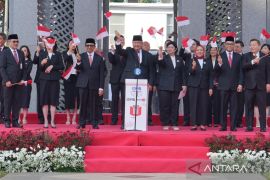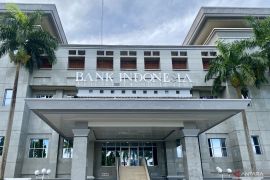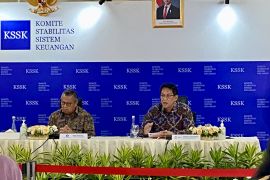BI spokesman Difi A Johansyah said here on Thursday the world`s economic growth is predicted to slow down due to uncertainty in the settlement of sovereign debt and fiscal problems in Europe and the US.
In 2013 however the country`s economy is predicted to grow between 6.4 percent and 6.8 percent in line with improving world economic conditions, he said when explaining the results of a BI board of governors` meeting.
In the fourth quarter of this year Indonesia`s economy would grow 6.5 percent so that overall growth in the year would reach 6.5 percent.
Difi said the BI board of governors had predicted the rate of inflation in 2012 and 2013 would be within a range of between 3.5 percent and 5.5 percent.
Therefore, he said, BI`s decisions to cut its reference rate so far were expected to be able to become a stimulus for the economy.
He said the board of governors remained alert over several risk factors in Indonesia`s macro-economic balance including the impact of the current global crisis.
Bank Indonesia`s board of governors at its recent meeting decided to maintain the overnight benchmark rate at 6.0 percent based upon an overall evaluation of economic performance, lingering risk factors and future economic prospects.
Difi said the board of governors viewed the present rate was still consistent with efforts to achieve future inflation targets and conducive for maintaining financial stability and reducing the impact of the worsening global economic prospects on the country`s economy.
"Based on evaluation domestic economy in general still remains strong with stability still maintained," he said.
Economic observer Ryan Kiryanto meanwhile said BI`s decision to maintain the rate at 6.0 percent was correct because inflation tends to rise in the future although the rate of inflation at the end of the year stands at around 4.4 percent.
He hoped the decision could also anticipate external pressure resulting from economic crisis in Europe and maintain the rupiah exchange rate against the US dollar not to fall too low.
(Uu.H-YH/HAJM/B003)
Editor: Priyambodo RH
Copyright © ANTARA 2011











